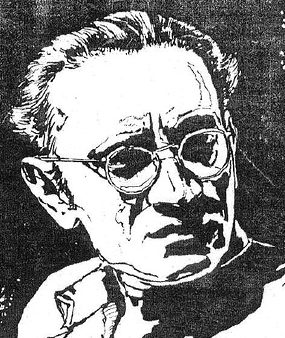| Version 11 (modified by , 12 years ago) (diff) |
|---|
Sadat Hasan Manto (1912-55)
Major Urdu writer and scenarist whose work has defined the literary and the filmic iconography of Partition (e.g. in his most famous story, Toba Tek Singh, cf. Manto, 1987), of the urban dispossessed and of the post- Independence political and bureaucratic ruling class. Often wrote diary or travelogue-type fictions with himself as observer or in conversation with his protagonist. A journalist in Aligarh, he went to Bombay to edit the film weekly Mussawar (1936). Joined Imperial as storywriter; in 1943 joined Filmistan, injecting some contemporary consciousness into its largely apolitical productions (e.g. Dattaram Pai’s Eight Days, 1946). Later, with [[Ashok Kumar]] rejoined Bombay Talkies and in 1948 migrated to Lahore to get away from the persecution of Muslims in Bombay. His published writings include 15 short-story anthologies, one novel (Baghair Unwan Ke, 1940), a play (Teen Auratein, 1942), essays (Manto Ke Mazamin, 1942) and a famous autobiographical account of his years in films, Meena Bazaar (1962/1984). His work was the basis of the British TV film Partition (1987), followed by the publication of his Kingdom’s End and Other Stories; acclaimed by Salman Rushdie as the ‘master of the modern Indian short story’.
Filmography
Kisan Kanya (1938), dir. Moti B. Gidwani, prod. Imperial Film Company
Apni Nagariya (1940), dir. Gunjal, prod. Hindustan Cine Tone
Chal Chal Re Naujawan (1944), dir. Gyan Mukherjee, prod. Filmistan
Jhumke (1944/46), dir. J.K. Nanda, prod. Chitra Productions
Begum (1945), dir. Sushil Mazumdar, prod. Taj Mahal Pics
Naukar (1945), dir. Syed Shaukat Hussain Rizvi, prod. Sunrise Pictures
Aath Din/Eight? Days (1946), dir. Dattaram Pai (uncredited Ashok Kumar), prod. Filmistan
Shikari (1946), dir. Savak Vacha, prod. Filmistan
Attachments
-
manto.jpg
 (149.7 KB) -
added by 12 years ago.
(149.7 KB) -
added by 12 years ago.
-
Manto2.jpg
 (39.8 KB) -
added by 12 years ago.
(39.8 KB) -
added by 12 years ago.
-
Saadat Hasan Manto.2.jpg
 (26.4 KB) -
added by 12 years ago.
(26.4 KB) -
added by 12 years ago.

